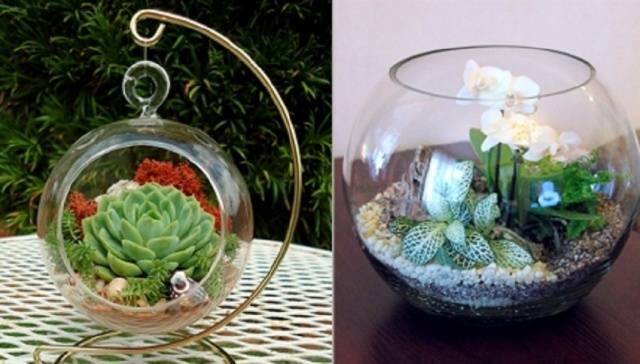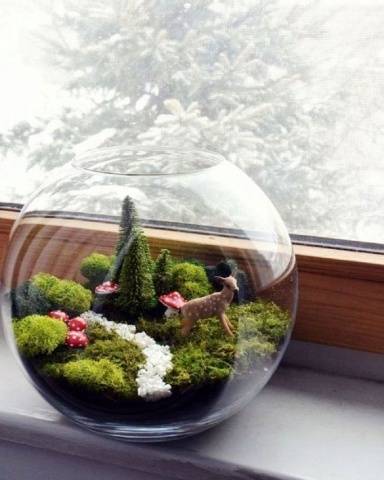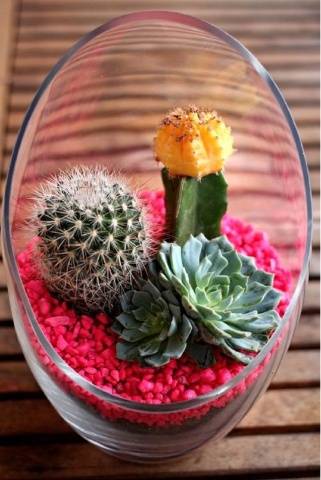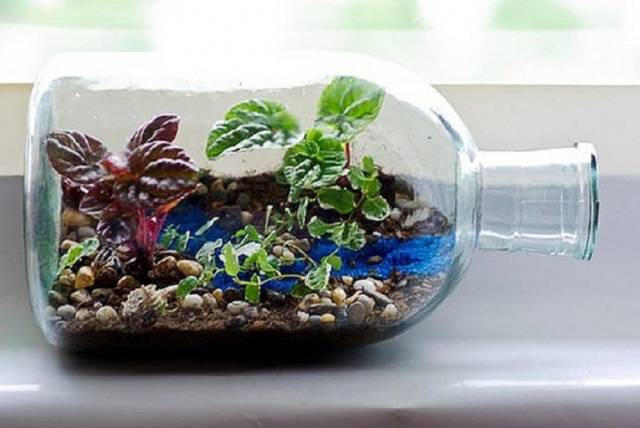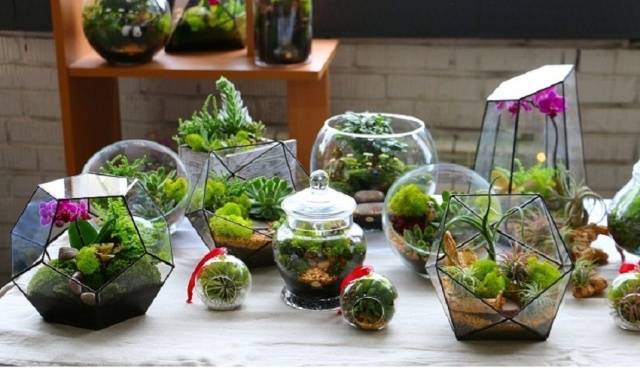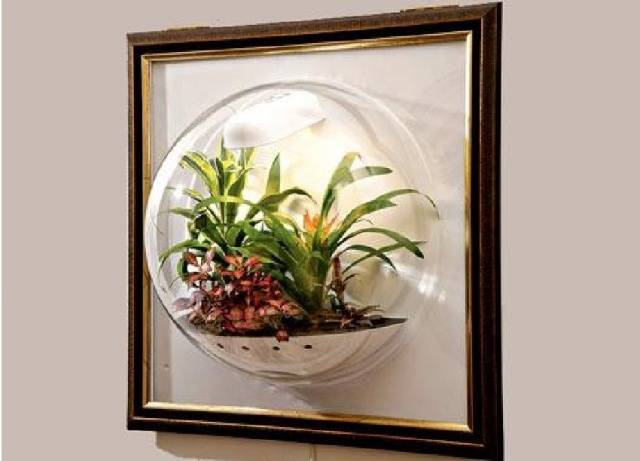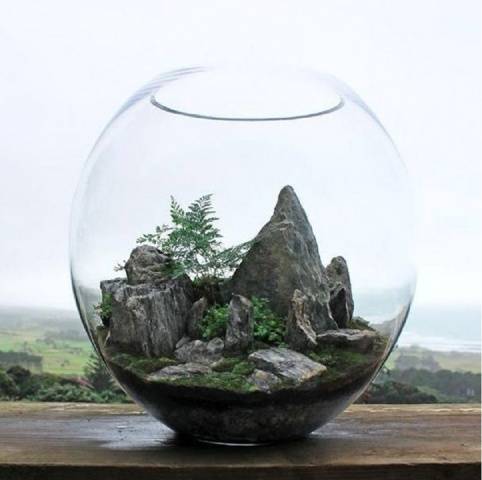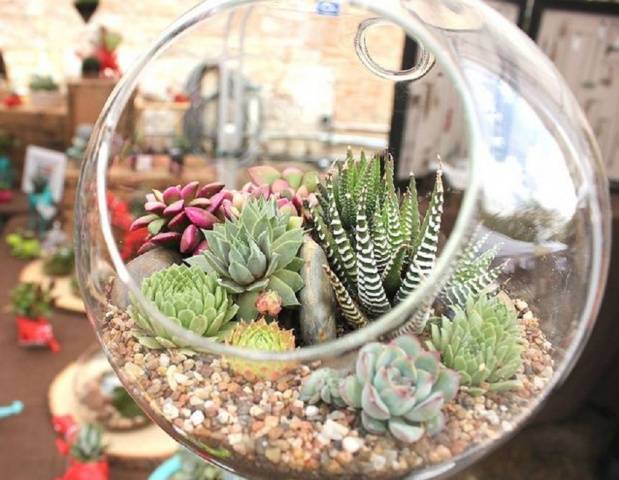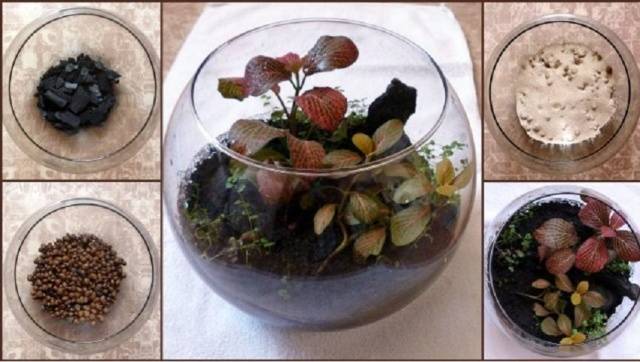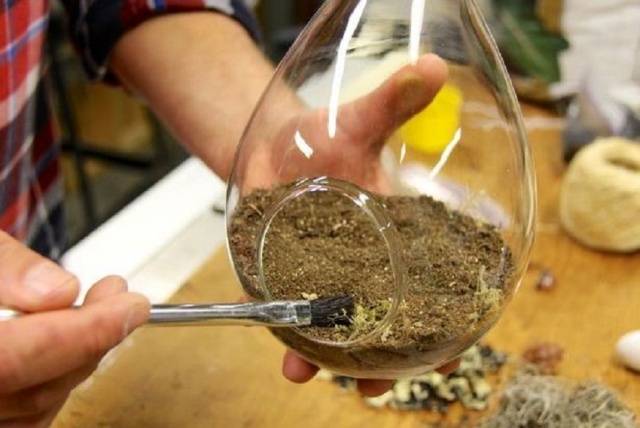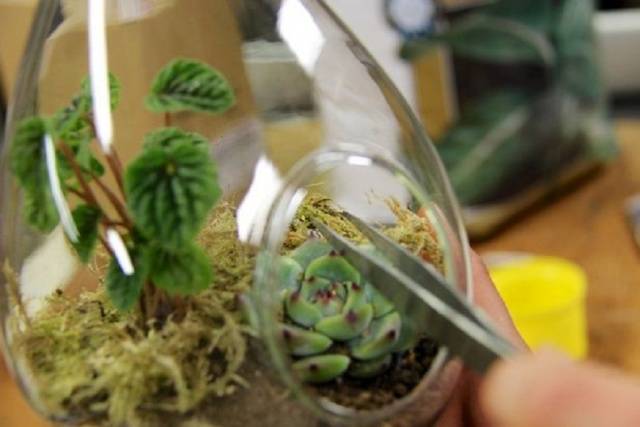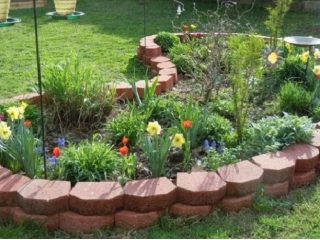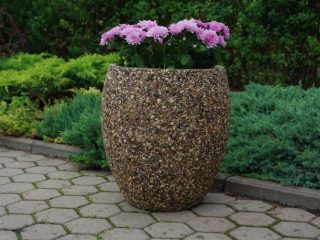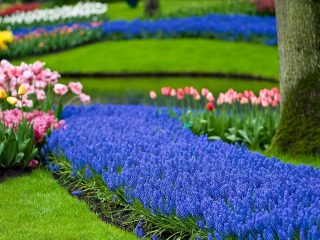Content
Everybody loves plants. Someone is fond of tropical species, others are fans of meadow grasses, and still others prefer conifers. But, most importantly, I really want these pets to be around all year round. It turns out that there is a way out. We create a florarium or a small home mini-greenhouse, and the winter climate is no longer a hindrance to growing a tropical garden in an apartment.
Exotic plants in such a vegetable terrarium will delight the eye regardless of climatic conditions.
The florarium has a great external resemblance to the aquarium. It is also placed inside a glass container, but there is no water or fish in it. Florariums appeared as mini-projects of winter gardens. As soon as such a piece of furniture settles in your house, then the place for rest and relaxation is already ready! With its help, it will always work out and surprise guests. In addition, there is an opportunity to get away from traditional flower pots. Plants in a mini-garden are able to bring such peace and tranquility that everyone wants to create such a florarium with their own hands.
Why is it so attractive? It is worth listing the benefits of a tiny plant terrarium, and the question immediately disappears:
- even recycled household materials are suitable for creating an original garden;
- the technology of manufacturing a florarium is so simple that children can easily make it;
- budget during the operation period (watering no more than 3 times a year);
- the uniqueness of each florarium;
- compactness is an ideal property for owners of small window sills and apartments;
- the ability to use in shaded areas, which will add greenery to different parts of the room.
What materials can a florarium be made of? Consider the possible options that contain step-by-step instructions for creating such a garden.
Choosing a space for a mini-garden
Most often, such plant mini-terrariums are placed in a container made of glass or dense plastic.
Some designers use wooden containers, as well as combined ones from various materials. The florarium differs from the terrarium by the presence of a narrowed inlet. It can be located both on top and on the side of the container. For more originality of some projects, it is closed with a lid of an unusual shape. At home, you can get by with a container for growing plants, a regular glass bottle or jar.
A bottle of wine, any bowl with a narrowed opening, and even a laboratory flask (this is to add creativity to the office space) will do.
The container you choose should maintain the humidity and temperature levels as stable as possible. This is the main purpose of the florarium.
If it is possible to provide an independent source of light and heat, then you can grow the most exotic and whimsical plants.
But when you have created a mini-garden in a glass, open jar, vase or bowl, then you need:
- monitor the temperature regime;
- spray the plants regularly;
- water them in a timely manner;
- protect from drafts (this item depends on the type of plant).
It is also important to remember that the plants that you have planted grow slowly, but still grow. Once this happens, you can transplant them into flower containers. After that the florarium will be ready for new tenants. How to make a florarium with your own hands? To do this, you need to perform several steps.First, choose a suitable place for the florarium.
Where to place the florarium
For such an exotic item, we choose a place that is visible and always in the spotlight. The mini-terrarium must be oriented so that all plants are in the most advantageous position. Then from anywhere in the room, they will be clearly visible.
Be sure to provide artificial lighting for the florarium. Firstly, it will add originality to the composition, and secondly, it will allow you not to be tied to a window or other source of natural light. Artificial lighting looks very attractive and allows you to vary the degree of lighting, direction and shade.
Of all types of florarium designs, the most advantageous is circular. With this solution, you have access to plants from all sides and can watch their development. And also this option will allow you to control the state of each of them. Try to accommodate the size of the room. Too bulky a florarium will look like a showcase and will cause a feeling of awkwardness.
Place a tiny garden of plants on the wall using containers, on shelves, tables or a window.
The composition looks great among beautiful vases. For children, you can combine the florarium with a living corner, where plants and animals will complement each other. And now we begin to create our own unique mini-garden. Consider a step-by-step plan for creating a florarium for beginners.
Creative tips for beginners
There are a lot of varieties of designs for a vegetable mini-terrarium. Experts offer ready-made forms, as well as advise on their placement. But, independent creativity is much more interesting and colorful, because each florarium is unique.
It is performed with different access to plants - frontal or vertical. The list of mandatory technical equipment includes:
- Additional lighting or lighting... Glass tinting will soften bright light, add an original shade to the interior of the florarium.
- Hygrometer, thermometer... Humidity and temperature control is a must. For tropical plants, it is necessary to comply with the required indicators. They are different from what we are used to, so you will have to keep track of them all the time!
- Ventilation... For the florarium, it is necessary to create cleanliness, freshness and air movement.
After preparing all the necessary technical equipment, we turn to the choice of plants. Plants for florarium are selected so that they are combined in size, color, texture, demanding conditions.
The most common inhabitants of mini-gardens are:
- Moss and fern. From mosses, sphagnum is most often used, and from ferns, species that grow slowly are chosen - mnogoryadnik, asplenium, pteris.
- Orchids, saintpaulias, cyclamens.
- Cacti and succulents.
- Ivy.
Of course, the list is very short, but for beginners, it is not the quantity that is important, but the correct combination of plants. Currently, the florarium from succulents is becoming very popular.
They look very impressive and are suitable for creating a "drought tolerant" composition.
We have decided on the types of plants, now we are starting to design the bottom of the florarium. It is good to put a plastic grate on it. In this case, the plants do not have to be in the water all the time. You can replace the grate with a layer of expanded clay or sand. Here they play the role of natural drainage.
There should always be water at the bottom. It can be in a special pallet or at the bottom of the container. This condition must be met in order to create increased humidity.If you purchased plants that usually grow in swampy places, then you will need a constant water layer up to 20 cm thick. Drought-resistant plants will not need such a condition.
We proceed to filling the florarium with plants. First of all, you need to prepare a substrate for the type of plants that you will plant. This is another reason why the same type of "tenants" are selected for the mini-garden. In addition to the substrate, additional design of the florarium will be required. Our plants need to be correctly positioned.
Regular shelves and ladders look too traditional. It is better to diversify the interior of the florarium with elements of "wild" nature. It can be the original form of driftwood, stumps, tree branches. Before being placed in a container, they should be protected from increased exposure to moisture. Here you can suggest, as an option, to wrap the tree in layers of sphagnum.
Light-loving plants are planted at the top of the florarium, shade-tolerant - below. Orchids create a special beauty. A wonderful background for them is ivy, ferns, tradescantia, asparagus. Do not use large-leaved and fast growing plants.
After completing all the points, you can admire your work and do not forget about caring for the florarium. The florarium maintenance manual is based on the selected plants, but you will have to spray the leaves, clean the showcase, shape and prune shoots in any case.
Plants need to be sprayed with purified water, diseased or overgrown ones should be removed in time. If you follow these simple rules, your florarium will be beautiful for a very long time.
